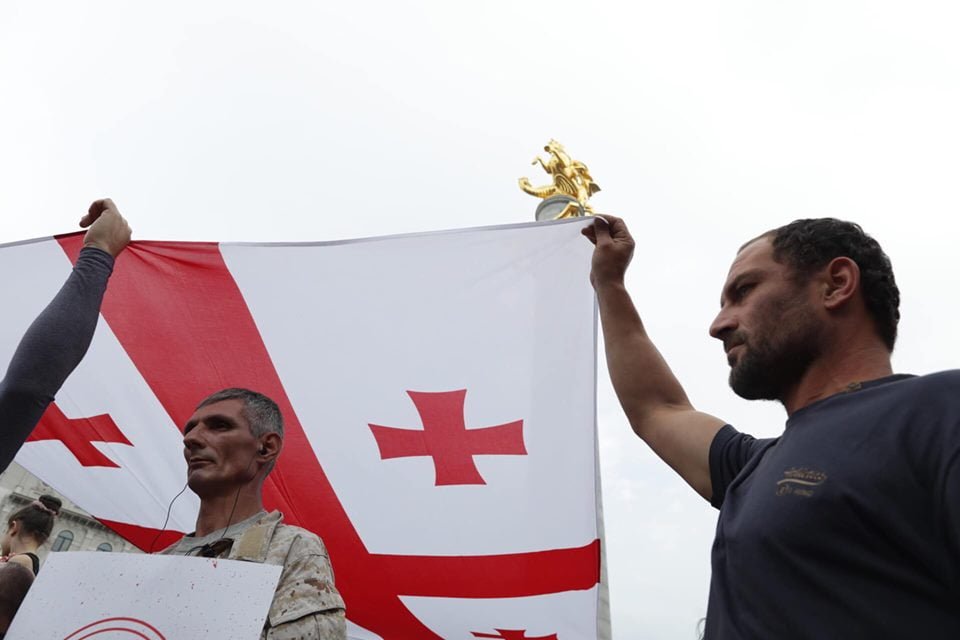“Fool me once, shame on you. Fool me twice, shame on me.”
The rise of Russia’s disinformation campaign in Georgia coincides with the country’s ongoing integration into Euro-Atlantic institutions. To derail Georgia from its path, Russia will most likely interfere in the upcoming parliamentary elections.
- Mariam Chikhladze, Election Integrity Fellow in Georgia, Alliance of Democracies Foundation
- Jonas Parello-Plesner, Executive Director, Alliance of Democracies Foundation
Scheduled elections on October 31st will happen at a pivotal moment in time. Expectations about the democratic elections are very high. Rightly so – there is no democracy without democratic elections. But if the public trust in the integrity of these elections would be undermined, then no election – regardless how perfectly run – can be legitimate. Thus, defending the integrity of Georgian elections is paramount.
In the upcoming elections, political parties and their candidates are on the front line to defend Georgia’s democracy and prevent election interference. Foreign meddlers know that candidates need to win. And some will work with almost any entity to get an advantage. The Russian interference playbook is well experienced in leveraging candidates to diffuse messages in line with their agenda of discontent and instability. The bottom line is that we will only solve the contamination of our politics when parties and candidates resist indecent tactics and by running transparent, ethical, law-abiding campaigns, do not directly or indirectly aid and abet those who seek to undermine Georgian democracy.
But Russia will continue to use the upcoming elections as an opportunity to undermine the confidence of Georgia’s citizens into their democratic institutions and processes. It has built and applied the interference playbook as well – a combination of disinformation campaigns, illicit financing of proxies, cyberattacks against political campaign elements and key infrastructure of state. Moscow’s aim is to sow dissent, to delegitimize democratic processes, to play with and amplify pre-existing biases, and to cause confusion and frustration. This way, it promotes its own political, economic, and ideological agenda.
It is safe to assume that Russia can easily pivot such operations in Georgia any moment before the Election Day. In fact, its footprints have already become conspicuous. In August, The Dossier Center, a watchdog organization funded by Putin-critic Mikhail Khodorkovsky, published strong evidence for financial assistance by Kremlin-linked sources for the election campaign of the Alliance of Patriots. In September, Facebook took down a network of Russian-sourced accounts running disinformation operations aimed amongst others on Georgia. The track record of previous Russian cyber-attacks carried out against key infrastructure reveals another domain of Georgia’s lack of resilience against foreign meddling. Until such vulnerabilities persist, the risk of malign election interference must not be underestimated.
To counter such malign efforts, the Transatlantic Commission on Election Integrity (TCEI), co-chaired by former NATO Secretary General, Anders Fogh Rasmussen and former US Secretary of Homeland Security, Michael Chertoff, initiated the Pledge for Election Integrity as a global standard for a healthy and transparent electoral process in the digital age. In short, the pledge calls upon all candidates wishing to run an honest and decent campaign not to use any data that has been falsified or stolen; not to spread doctored audio or video messages such as deepfake videos; to be transparent if automated accounts are used to spread messages; to keep their election staff knowledgeable when it comes to cyber security of the election campaigns; and to be transparent about where campaign financing is sourced. The Pledge was launched for the first time ahead of the 2019 European elections and had been supported by the top candidates of all major party families and signed by almost 180 individual candidates. Later it had been extended to the national elections in Canada where all three major parties signed it. In the United States, Vice-President Biden, also a former founding member of our Transatlantic Commission, has taken the pledge as Presidential candidate.
Now, the time has come for parties and candidates in Georgia to find common ground and unite in the face of such a national threat. Though the pledge cannot prevent Russian interference as such, it increases the political price for those who help and places themselves at the scrutiny of civil society and journalists who are the forefront of monitoring these practices. One might further question, if the pledge will gather the signatures of pro-democratic parties who aren’t susceptible to aid malign meddlers anyway? Concurrently, the pledge serves as a lustration mechanism too and not taking it doesn’t leave a party or a candidate beyond the public scrutiny for violating its principles. Actually, quite the opposite.
Russian forces continue fencing off Georgian territory along the administrative boundary line and maintain effective control of South Ossetia/Tskhinvali Region and Abkhazia. While reinforcing Georgia’s vulnerability in this domain, Russia wages a new type of war on another frontier too, aimed at undermining democratic processes and institutions. We shouldn’t let it happen. The people of Georgia need to defend their democracy the same way as they defend their borders.

